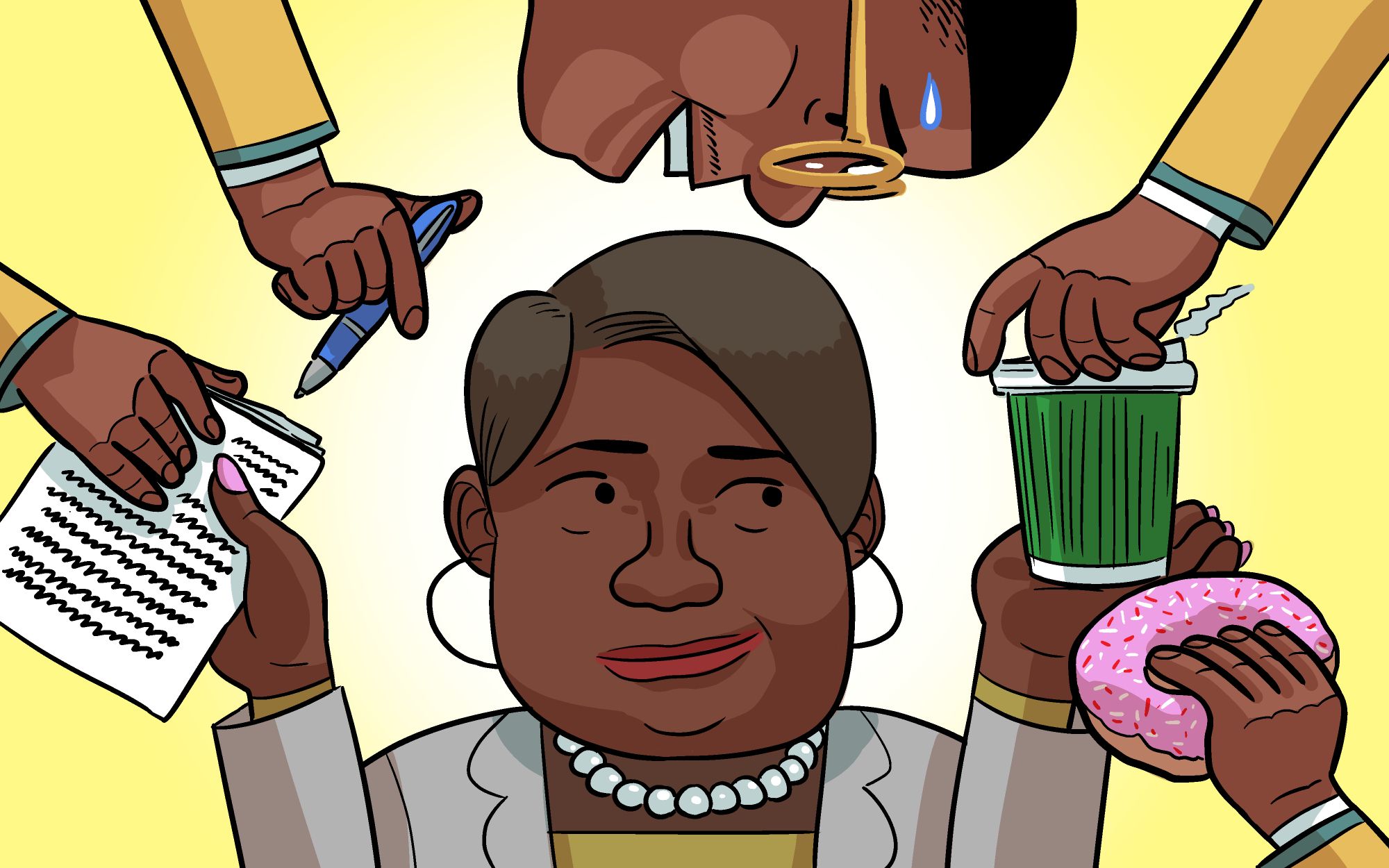Everyone loves getting a raise. But once you become a manager, you get just as excited about another workplace upgrade: budget for additional personnel. Sure, your own pay stubs aren’t any heftier, but if you hire properly, the workload can become lighter for everyone. In these times, I need all of the peace of mind I can get. Gimme more direct reports over more direct deposit any day of the week.
I was recently bestowed with the power of multiplication at the job, and for a moment I felt like Thanos’ benevolent alter ego. I saw an opportunity, a chance to bring balance to an embarrassingly homogenous workforce. Yet by the end of it, the whole process left me wishing it was as simple as snapping my fingers.
Perhaps I could’ve been more clear with my colleague Mitch, who I’d tasked with heading up the talent search. Look out for candidates who are “not like me and him,” I instructed. Mitch is a White man, I’m a Black man, and we both identify as heterosexual. Easy enough to read between the lines, one might think. With the exception of Black Karen, our team was, like most of the company, predominantly male. We had an opportunity to do our part to change that with our one new hire. It would behoove us as a marketing team to be more inclusive so our content can reflect the changing time we’re in.
A week after the job post went live, Mitch told me he’d found 10 candidates whose résumés met the minimum qualifications. Things were off to a good start, but when I asked how he went about sifting through the résumés, the first of his blind spots became apparent. He’d eliminated applicants by only considering those who submitted a cover letter—which we’d specified as optional. And it seemed he’d only selected men.
While not as implicit of a bias as where someone went to school, I still took exception to Mitch’s approach. Cover letters are an overrated litmus test that rarely reveal something about a candidate that can’t be reflected in a stellar résumé. Most people follow the same templates anyhow, switching out information depending on the role and company. If anything, I believe cover letters contribute to more bias, not less. (I’ve seen hiring managers eliminate someone due to a cover letter typo—great résumé be damned.)
This was an easy situation to manage. I sent Mitch back to review the previously disqualified résumés. To his credit, he took the feedback well. Mitch replaced six of the candidates in his original pool; two of those, he said, he felt certain could be “the one.” My excitement devolved into a facepalm when I looked through his choices, which were dominated by popular male names like Braden, Robert, and Jake. A LinkedIn search quickly confirmed the application he’d earmarked from a Jamie was also submitted by someone who identified as he/him. Sigh. More of the same. I just could not even.
I didn’t quite say “I’ll be damned if we hire another straight White man at this company,” but I might as well have. Especially after cutting the meeting short in annoyance.
In our next 1:1 meeting, when I once again emphasized the importance of a diverse candidate pool, things got tense. Particularly when Mitch defended his selections with his own concerns about—trigger warning—“lowering the bar.” Like Martin Lawrence in Bad Boys II, I had to let out a meditative woosah before proceeding so that I could keep my code-switch set to corporate.
I reminded Mitch that expanding the candidate pool isn’t the same as lowering standards—especially when the minimum qualifications for the role weren’t all that high to begin with. There’s a business need for why we should seek out and at least consider candidates who aren’t like us, I stressed, curtly. I didn’t quite say “I’ll be damned if we hire another straight White man at this company,” but I might as well have. Especially after cutting the meeting short in annoyance.
This was easily the toughest conversation I’ve had as a manager thus far; it felt like I was witnessing an inside look at why corporate spaces like the ones at which I’ve been employed have been so damn difficult to crack for non-Caucasian men. I left early that day to get my mental right. And later that evening, I came to the realization that not only did Mitch fail me, but I failed him, too. I’d made his task more difficult when I could’ve dropped all of the Secret Squirrel crypticness and been more upfront in what I was looking for: a number of female or nonbinary candidates that is at least equal to the number of White male candidates. Even more, led by my own emotions, I was showing a bias towards diversity. There’s no such thing as good bias as a manager. I hoped my message wasn’t misconstrued.
I awoke the next morning to an email from our company’s CEO. Apparently, due to the unpredictability of the next quarter, a temporary hiring freeze had been implemented. As such, we were told to press pause on a search for open roles. How’s that for a plot twist?
Still, I needed to check in with Mitch, apologize for my abrasiveness and failure to give clear direction, and thank him for his hard work leading the search. In turn, Mitch said he understood and supported my mission. Despite the hiring freeze, he insisted on consulting his own peers to see if there are strong non-male candidates who should be on his radar for the future.
“I was actually trying to avoid bias by tapping into my own network because, honestly, most of them look like me,” he said. “But maybe they know some good people who can help us make this place look less like us—or at least more like Karen.”
Then, in what I can only assume was a means of showing we were on the same page, he clarified: “Our Karen.”


